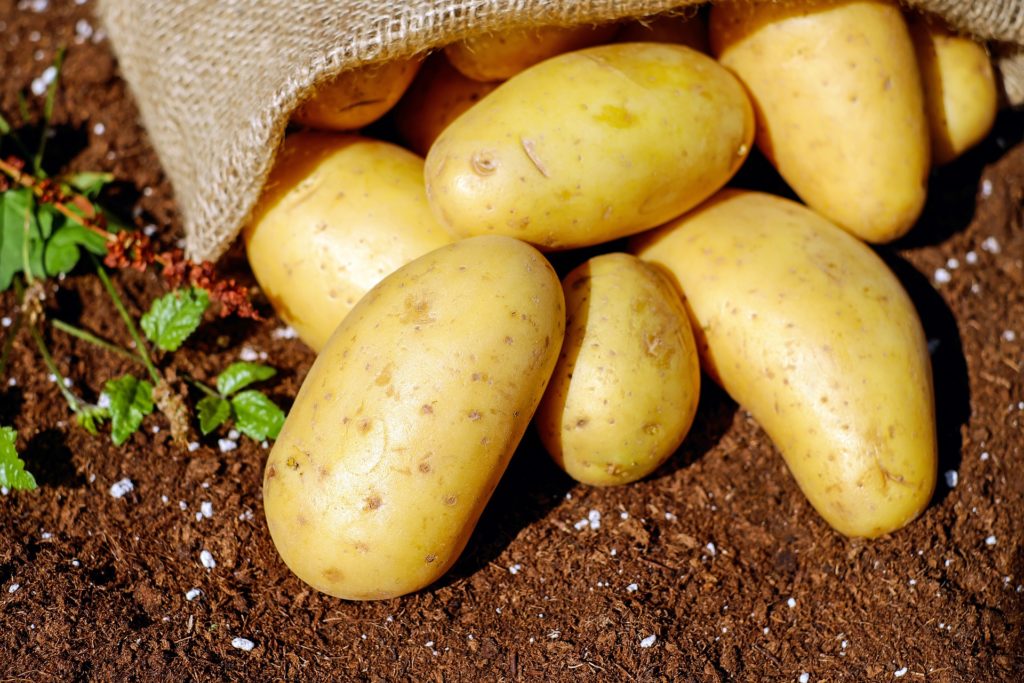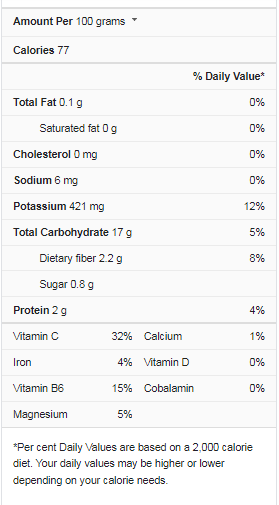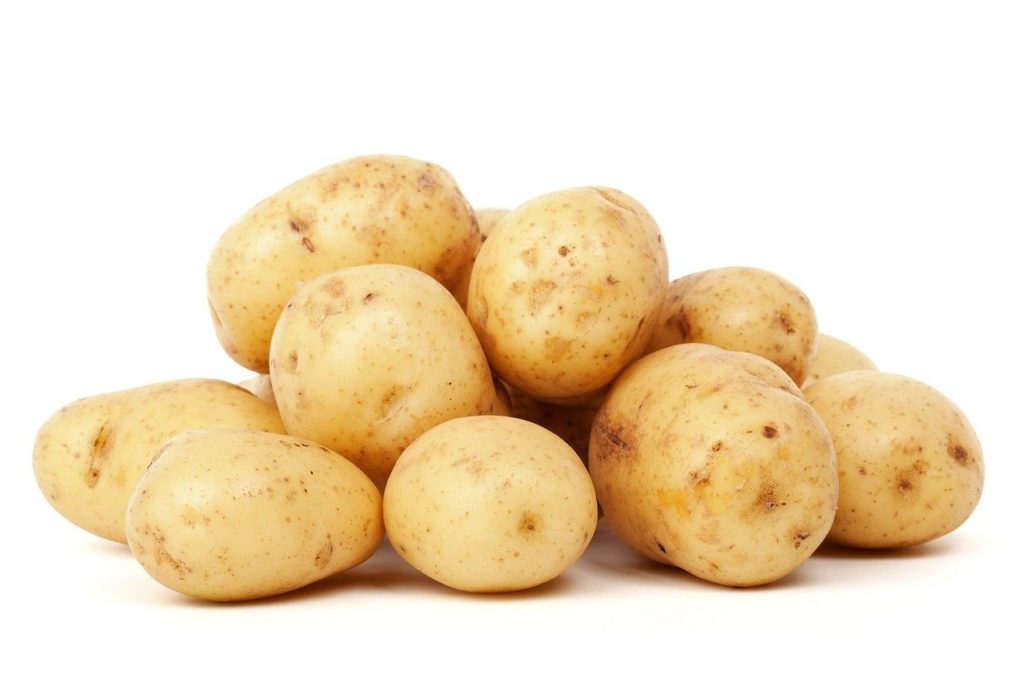Look no further than the potato if you want to boost your performance. Potatoes provide the glucose, potassium, and energy you need to perform at your best. Potatoes contain more energy than any other common vegetable and have more potassium than bananas. Plus, whether you live an active lifestyle or compete with professional athletes, there are potato performance recipe alternatives to nourish your body and brain throughout the day.
Potatoes are often considered a comfort dish, whether mashed with butter and sour cream or crisply fried in vegetable oil. According to the Harvard School of Public Health, however, they can lead to weight gain, diabetes, and heart disease when prepared in this manner.
Potatoes Nutrition Fact
Nutrition Value Of Potatoes
Many vitamins and minerals, including potassium and vitamin C, are found in cooked potatoes with skin.
Potatoes are composed mainly of carbs, with reasonable levels of protein and fiber — but nearly no fat — and are high in the water when fresh.
The nutrients included in 2/3 cup (100 grams) of boiled potatoes — cooked with the skin on but without salt.
Carbs
Carbohydrates, generally in starch, make up the majority of potatoes. Carbohydrate content ranges from 66–90% of dry weight.
Small amounts of simple carbohydrates like sucrose, glucose, and fructose are also present.
Potatoes typically have a high glycemic index (GI), making them undesirable for people with diabetes. The GI is a scale that measures how foods affect your blood sugar levels after a meal.
However, some potatoes may be in the medium range depending on the variety and cooking method.
Cooling potatoes after boiling reduces their blood sugar impact and lowers their GI by 25–26%.
Fibers
Although potatoes are not a high-fiber food, frequent consumption may provide a considerable fiber supply.
The skin, which accounts for 1–2% of the potato, has the highest fiber content, and dried skins contain around 50% fiber.
Pectin, cellulose, and hemicellulose are all insoluble fibers found in potatoes.
They also include variable quantities of resistant starch, a form of fiber that feeds your gut’s beneficial bacteria and helps digestion.
Resistant starch can also help control blood sugar by reducing blood sugar spikes after meals.
When compared to hot potatoes, chilled potatoes have more resistant starch.
Protein
Potatoes have a modest protein content, ranging from 1–1.5 percent fresh and 8–9% dry weight.
Potatoes have the lowest protein content of any typical food crop, including wheat, rice, and corn.
On the other hand, potatoes have a very high protein quality for a plant – much more excellent than soybeans and other legumes.
Patin, the major protein in potatoes, may trigger allergy responses in some people.
Minerals And Vitamins
Potatoes are high in potassium, vitamin C, and other vitamins and minerals.
Some vitamins and minerals are depleted when cooked, but this can be mitigated by baking or boiling them with the skin on.
Potassium, the most abundant mineral in potatoes, is concentrated in the skin and may benefit heart health.
Vitamin C is a powerful antioxidant. Vitamin C, the most abundant vitamin in potatoes, is significantly reduced when cooked h, leaving the skin on appears to reduce this loss.
Folate is typically found in potatoes with colored flesh, concentrated in the peel.
B6 is a B vitamin, and B6 is essential in synthesizing red blood cells found in most meals.
Compounds From Other Plants
Potatoes contain a high concentration of bioactive plant chemicals, concentrated mainly in the skin.
Polyphenols, an antioxidant, are found in the highest concentrations in purple or red skin and flesh varieties.
Chlorogenic acid is a kind of chlorogenic acid, and this is the most common polyphenol found in potatoes.
Health Benefits Of Potatoes
According to the USDA, potatoes are high in phytonutrients, organic components of plants known to enhance health. Carotenoids, flavonoids, and caffeic acid are phytonutrients found in potatoes.
Potatoes contain vitamin C, which functions as an antioxidant. According to the National Institutes of Health, these compounds may prevent or delay various types of cell damage. They may also aid digestion, cardiovascular health, blood pressure control, and cancer prevention.
Purple potatoes, in particular, are high in phytonutrients and antioxidants. According to a 2012 study published in the Journal of Agriculture and Food Chemistry, eating six to eight little purple potatoes twice a day helped persons with hypertension drop their blood pressure and reduce their risk of heart disease and stroke. Even though purple potatoes are high in carbs, the individuals did not gain weight.
Blood Pressure Is A Measurement Of How High Or Low
For a variety of reasons, potatoes may help reduce blood pressure. Potato fiber, according to Jarzabkowski, may help decrease cholesterol by binding to cholesterol in the blood. “We excrete it after it binds.”
Potassium is also abundant in potatoes. “All potatoes are high in potassium, “They have more potassium than a banana, and the skin of the [potato] has a lot of it.” She also mentioned that the outer potato peel has a lot of fiber. According to the US Food and Drug Administration, potassium is a mineral that helps decrease blood pressure.
Potassium’s functions as a vasodilator can also assist reduce blood pressure (blood vessel widener). According to researchers at the Institute for Food Research, potatoes contain kukoamines linked to reducing blood pressure.
The Health Of The Nervous System And The Functioning Of The Brain
Potatoes are high in B6 vitamins, which are essential for brain health. According to the University of Maryland Medical Center, vitamin B6 aids in the production of essential brain chemicals such as serotonin, dopamine, and norepinephrine. This suggests that potatoes may assist with sadness, stress, and even attention deficit hyperactivity disorder (ADHD) (ADHD).
The high carbohydrate content of potatoes may have certain benefits, such as maintaining healthy blood glucose levels, essential for appropriate brain function. The American Journal of Clinical Nutrition released a study in 1995 that revealed that slight glucose increases could improve learning and memory. Potassium, which promotes blood vessel enlargement, ensures that your brain gets enough blood.
Immunity
According to the Washington State Potato Commission, potatoes contain roughly 45 percent of the daily required vitamin C intake per medium baked potato, which can help prevent everything from scurvy to the common cold.
Inflammation
Some people believe that potatoes and other nightshade vegetables, such as eggplants, tomatoes, and peppers, cause arthritic flare-ups. However, according to the Arthritis Foundation, limited scientific evidence supports this idea. People with arthritis should try eliminating nightshade vegetables from their diet for two weeks to see whether their symptoms improve.
According to the foundation, several research suggests that certain vegetables may truly help minimize arthritic symptoms. Potatoes, for example, were proven to lower inflammation in a 2011 study published in the Journal of Nutrition.
Digestion
Potatoes’ most significant health benefit, according to Jarzabkowski, is their ability to ease digestion due to their high fiber content. Potatoes are easy to digest due to their high carbohydrate content, and their fiber-rich peel might help you stay regular.
Heart Health
Because of their high fiber content, potatoes give your heart many reasons to swoon. Fiber helps eliminate cholesterol from blood arteries, vitamins C and B6 assist minimize free radicals, and carotenoids help preserve optimal heart function.
B6 is also essential in the methylation process, which transforms the potentially hazardous chemical homocysteine into methionine, a component of new proteins, among other things. Homocysteine can damage blood vessel walls in excess, and high levels are linked to a higher risk of heart attack and stroke.
Conclusion
Potatoes can enhance electrolyte balance,” she explained. “Sodium and potassium are two vital electrolytes contained in potato peels, and athletes lose them through sweat.” Electrolytes are essential for optimal physiological function, and as many athletes know, too few can induce cramps.
Potatoes are often considered a comfort dish, whether mashed with butter and sour cream or crisply fried in vegetable oil. According to the Harvard School of Public Health, however, they can lead to weight gain, diabetes, and heart disease when prepared in this manner.




